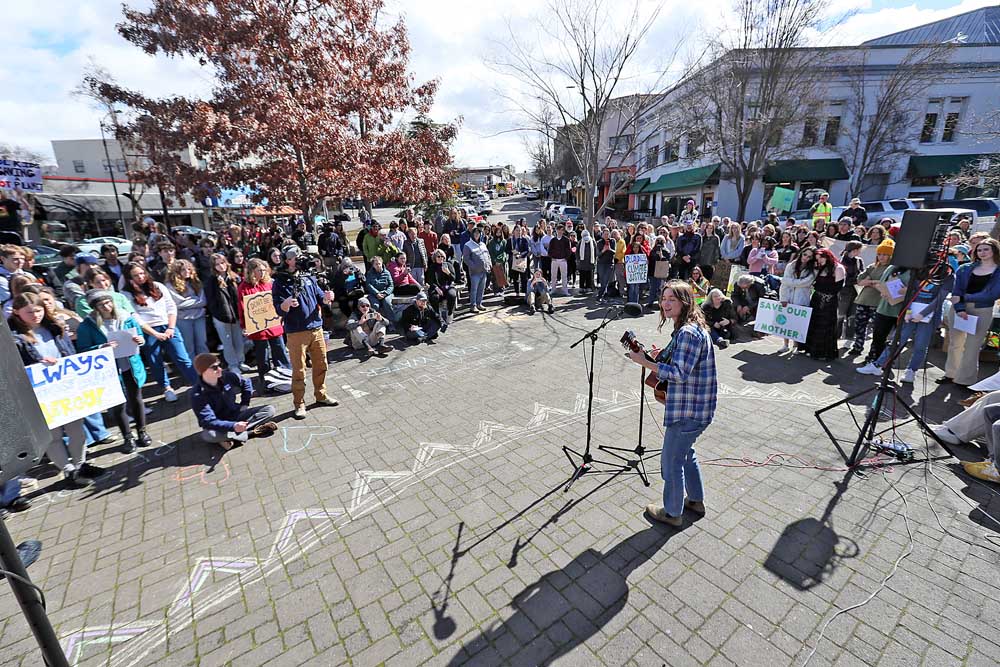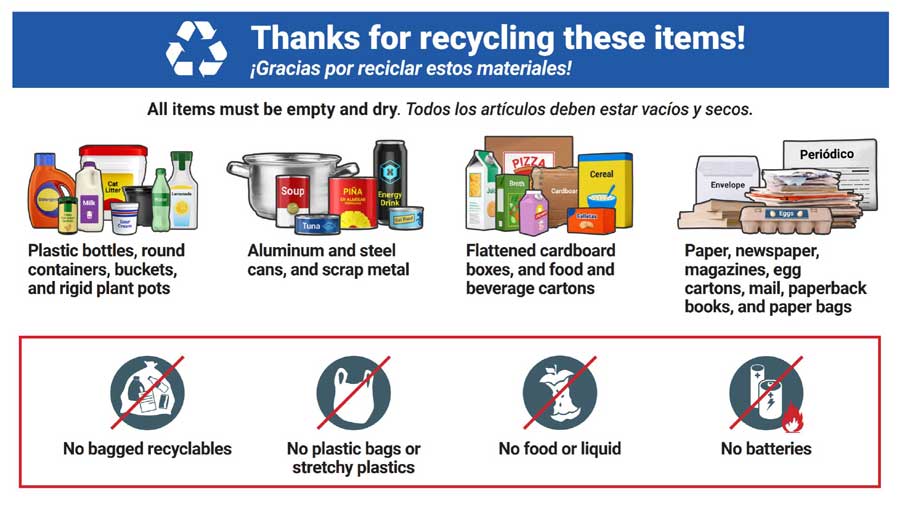Movement launched to add environmental rights amendment to Oregon Constitution
Published 9:29 am Thursday, March 27, 2025

- Tate Oliva, an Ashland High School senior, plays a song during a climate walkout and rally In March 2023 at the downtown Ashland Plaza. File photo
State Sen. Jeff Golden of Ashland, a chief sponsor of the joint resolution, says ‘we’re losing sight of our stewardship responsibility to our children and their children’
Oregon’s youth climate change lawsuit may be dead, but some legislators, residents and a statewide coalition of nonprofits aren’t giving up.
Angered by the chaos of President Trump’s first months in office, they said they want to enshrine the right to a clean, safe and healthy environment in Oregon’s Bill of Rights and are calling on lawmakers to refer a proposed constitutional amendment to Oregon voters.
At least three other states have passed similar amendments and several others are working to add them.
“In the frenzy of current issues, we’re losing sight of our stewardship responsibility to our children and their children. A constitutional amendment could help put us back on course,” said Sen. Jeff Golden, D-Ashland, one of the joint resolution’s chief sponsors.
Coalition members — including state climate groups, faith communities and grassroots nonprofits — testified Wednesday before the Senate Rules Committee, saying that the fundamental right to a healthy environment is key as climate change has become a reality for state residents and as the Trump administration guts environmental rules and shrinks the federal agencies and staff responsible for enforcing them.
Federal officials over the past month have said they will roll back major climate policies, including rules that target pollution from vehicles and power plants, and said they plan to reconsider a scientific finding on the dangers of climate pollution.
The amendment would allow state agencies to create rules that protect Oregonians and would make it easier to take regulators and polluters to court.
“The gutting of the EPA [ Environmental Protection Agency] and the failure of the Juliana [youth climate] case says that Oregon really is on our own,” said Philip Carver, an organizer with the Oregon Coalition for an Environmental Rights Amendment. “It’s hard to see how the EPA can do its job on air toxins, groundwater and other issues if they don’t have any staff.”
Opponents say the amendment would spur unnecessary lawsuits that could target farmers, manufacturers, home builders and other businesses and could harm economic development in the state.
“We see this as a pathway to an endless stream of lawsuits against family farms and ranches. This would put the court in the driver’s seat, allowing them to shape public policy for a lot of industries,” Lauren Kuenzie, a spokesperson with the Oregon Farm Bureau, told the committee.
But backers said lawsuits against individual businesses have not materialized in the states that have amendments.
Instead, the states that have passed “green amendments” have seen more success with climate cases aimed at larger federal or state-focused policies.
In Montana, for example, a youth climate lawsuit led to a landmark ruling in 2023 that said the state was violating residents’ constitutional right to a clean environment by continuing to pursue fossil fuel expansion. The lawsuit was based on the environmental right incorporated in Montana’s Constitution.
In December, the state Supreme Court upheld the ruling, meaning that Montana regulators must now consider the impact of emissions when issuing permits.
Similarly in Hawaii, where the state Constitution establishes “environmental rights” for its citizens, a youth climate lawsuit claiming the state’s transportation system violated constitutional rights to a clean environment led to the government settling the case and launching a plan to reduce emissions in its transportation system.
Oregon’s youth lawsuit – called Juliana v. United States after one of the activists, Kelsey Juliana – failed to advance because Oregon doesn’t have such an amendment, said Mat dos Santos, co-executive director and general counsel of Our Children’s Trust, the nonprofit law firm that represented the plaintiffs.
Earlier this week, the U.S. Supreme Court declined a petition to revive the nearly decade-old case initially filed by Oregon youth climate activists in 2015.
“The courts acknowledged the harms the youth experienced were tied to climate change, but they said their hands were tied. Why? Because the constitution doesn’t explicitly protect their right to a healthy environment or a stable climate,” dos Santos said.
Several children and teens attended the hearing and testified in favor of the amendment, pleading with legislators to address climate change.
“Our mountains, beaches and forests are known worldwide, but those forests will burn, the snow packs will melt and the beaches will get covered in trash because of climate change and pollution,” Alexander McCulloch, 13, told legislators.
He added: “Each year, Oregonians are dying from climate change caused disasters like wildfires and heat waves. Enshrining the fundamental right to a clean and healthy environment in our constitution will safeguard both Oregon’s natural beauty and the lives of my and my children’s generations.”
The coalition said if legislators don’t send the amendment to voters, backers will aim to get it on the ballot via a ballot initiative.










